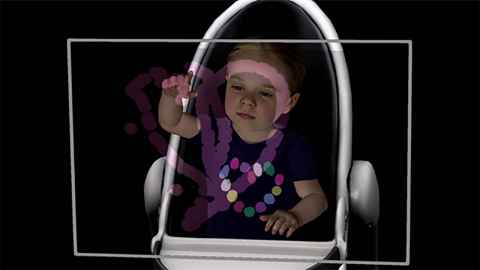Researcher recognised for developing the empathic side of Artificial Intelligence
27 November 2019
Associate Professor Mark Sagar, director of the Laboratory for Animate Technologies at the Auckland Bioengineering Institute (ABI) is one of seven University of Auckland academics recently elected as a Royal Society Ngā Ahurei a Te Apārangi Fellow.

Assoc. Prof Sagar also heads the University spinoff Soul Machines Ltd, a science and technology company that merges Artificial Intelligence (AI), computational brain models and experiential learning.
He is a pioneer in computational modelling of the face, which he describes as “the mirror of the brain, a symphony of cognitive and emotive processes that plays out on the face”.
It is an ongoing interest he has pursued from his Mechanical Engineering PhD at the University of Auckland and later through technical roles in Weta Digital. There he developed animation systems used in movies such as Avatar, King Kong and many others featuring computer-generated characters. For his work in animation technologies, he has received two scientific and technical Academy Awards.
Assoc. Prof Sagar’s research has headed increasingly deeper under the skin, not only simulating facial musculature, but into behavioural circuits and cognitive processes. He is renowned globally for the creation of BabyX, a virtual infant/toddler – although he would describe BabyX as a “digitally embodied computational model that responds to new information and interacts with people in human-like ways”.
What we’re building is an expressive machine that can learn from experience, emote and think for itself.
In other words, BabyX and the several other characters created by Soul Machines are more than just machines that can be programmed to do certain things.
“What we’re building is an expressive machine that can learn from experience, emote and think for itself,” he says.
His research involves identifying how people behave, and using mathematical and computational modelling to evoke human-like behaviour in a digital human.
For example, if Assoc. Prof Sagar turns up the oxytocin levels on the computational model of BabyX, her eye contact increases and her mood changes, replicating one of the ways in which humans form social connections.
Putting together models of behaviour means developing a framework of interconnected neural networks which control the digital body, computationally modelling the theoretical functions of a range of systems in the brain, such as the basal ganglia (involved in reward and action selection) and the hippocampus (involved in episodic memory).
By creating interactive models of human cognition and emotion, Assoc. Prof Sagar aims to gain new insights into human nature, explore how interconnected neural-processing models give rise to intelligent and emotional behaviour, and build the foundation for future human-intelligent machine co-operation.
The robots are coming, but his work is about re-imagining how people interact with technology.
“In the future we’re going to work with machines more and more,” he says. “So this is about humanising artificial intelligence.”
Being made a Fellow of the Royal Society is a recognition of distinction in research, scholarship or the advancement of knowledge at the highest international standards.
“I’m extremely honoured and humbled to receive a fellowship from such a venerable organisation. I’m excited by the diversity of the interests and expertise of the members, and by the mission of the Society to foster and share knowledge.”
Want to help us make a difference?
There are many ways you can make a difference and support the Auckland Bioengineering Institute - you can make a donation or bequest, or even subscribe to our newsletter.
Media contact
Margo White I Media adviser
DDI 09 923 5504
Mob 021 926 408
Email margo.white@auckland.ac.nz